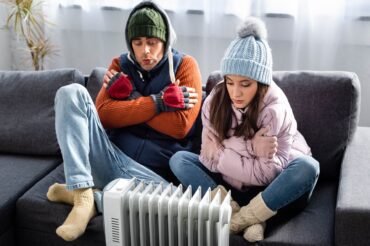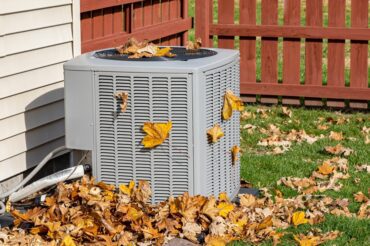Air filtration systems have been in the news a lot lately, especially in reference to the coronavirus. Although we are still learning so much about this novel virus and best practices to contain it, many experts are looking to air purifiers as one more line of defense in reducing transmission of COVID-19.
Top Notch is paying close attention to the research in hopes of better serving our Kansas City HVAC customers in these unprecedented times. We wanted to share what we do know about air purifiers and SARS-CoV-2
Recent findings suggest coronavirus transmission is airborne
With the urging of more than 200 experts, the World Health Organization conceded in early July that the virus may linger in the air in enclosed indoor spaces much longer than first suggested. While most droplets expelled through coughing, talking and breathing fall to the ground quickly, some smaller particles remain in the air for some length of time.
Past viruses and the use of air filtration to reduce risks of transmission
During the SARS outbreak in 2003, air purifiers with high-efficiency particulate air (HEPA) filters were used in Hong Kong hospitals to help reduce transmission when isolation wards were unavailable. In the U.S., the CDC also recommended the use of HEPA purifiers to help reduce viral concentration of the SARS virus in the air if proper ventilation was not achievable in hospital rooms. Recent research published in the Journal of Infectious Diseases suggests that air filtration can reduce the risk of transmission of measles and influenza.
High-efficiency MERV (minimum efficiency reporting value) filters are extensively used in hospitals, nursing homes and other locations where sterilization is of utmost importance to control infectious diseases.
How can air purifiers help stop the spread of SARS-CoV-2 (COVID-19)?
Air purifying systems have been around a long time as a mechanism for reducing the amount of pollen, mold, dust and harmful contaminants that collect in the air in homes and businesses. If an air purifier can remove tiny particles from the air, it could possibly reduce the concentration of the virus in a room, and in turn reduce the potential for exposure.
The virus that causes COVID-19 is approximately 0.125 micron in diameter. HEPA filters with higher MERV ratings are highly effective in capturing 99.97 percent of particles that are 0.3 micron in diameter.
The droplets that travel through the air containing the novel coronavirus can be as large as 1 micron, a size easily captured by HEPA filters.
If someone is sick with COVID-19, using an air purifier in a quarantine area may help protect other family members or caregivers. An air purifier can also be advantageous to healthcare workers self-isolating when at home.
What air purification products are available through Top Notch?
Aprilaire whole home air purifiers
Portable air purifiers
MERV high-efficiency air filters
Aerus Air Scrubber UV Light
Lennox Healthy Climate® Germicidal Light
Portable UV lights
Humidifiers
Dehumidifiers
We’ll help you determine what air filtration system is best to improve your home’s indoor air quality and possibly help fight viruses like the flu and coronaviruses.
In closing, this is the EPA statement on air purifiers and COVID-19:
When used properly, air purifiers can help reduce airborne contaminants including viruses in a home or confined space. However, by itself, a portable air cleaner is not enough to protect people from COVID-19. When used along with other best practices recommended by the CDC, operating an air cleaner can be part of a plan to protect yourself and your family.







